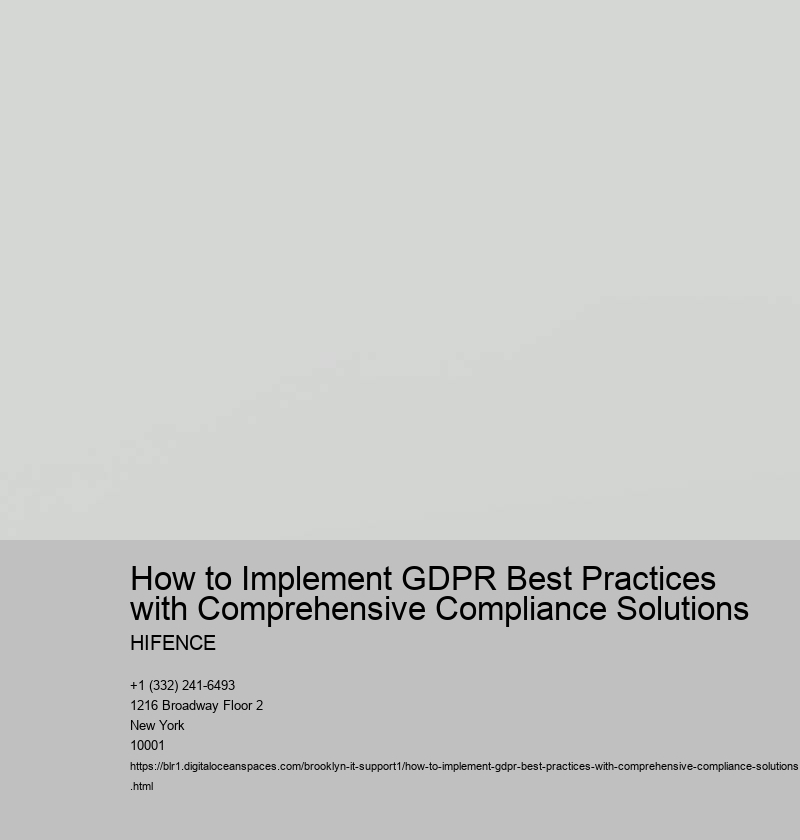How to Implement GDPR Best Practices with Comprehensive Compliance Solutions
service providers
In today's digital age, data protection and privacy have become increasingly important. With the rise in cyber threats and data breaches, organizations need to take proactive steps to ensure the security of their customers' personal information.
How to Implement GDPR Best Practices with Comprehensive Compliance Solutions - business continuity
- services
- service provider
- accenture
- cybersecurity risk calculator
- hubspot
- cio
- cyber threats
- management
GDPR is a set of guidelines designed to regulate the processing of personal data of individuals within the European Union (EU). It imposes strict rules on how organizations collect, store, and use personal data, and requires them to implement appropriate security measures to protect this data from unauthorized access or disclosure.
Implementing GDPR best practices requires a comprehensive approach to compliance. Organizations need to understand the requirements of the regulation and how it applies to their operations. They must assess their current data processing practices and identify any areas of non-compliance.
How to Implement GDPR Best Practices with Comprehensive Compliance Solutions - power consulting
- service providers
- power consulting
- business continuity
- cyber
Once organizations have identified areas of non-compliance, they need to implement appropriate measures to address these issues. This may involve updating their privacy policies, implementing data encryption, or appointing a data protection officer to oversee compliance efforts. Organizations may also need to train their employees on GDPR requirements and best practices to ensure they understand their responsibilities when handling personal data.
In addition to these internal measures, organizations may also need to work with third-party vendors or service providers to ensure they are GDPR compliant. This may involve reviewing contracts and agreements to ensure they include appropriate data protection clauses and conducting regular audits to ensure vendors are meeting their obligations under the regulation.
Overall, implementing GDPR best practices requires a proactive and comprehensive approach to compliance. By understanding the requirements of the regulation, assessing current data processing practices, and implementing appropriate measures to address any areas of non-compliance, organizations can protect their customers' personal data and ensure they are meeting their legal obligations under GDPR.
How to Implement GDPR Best Practices with Comprehensive Compliance Solutions - power consulting
- vulnerabilities
- monterey park
- pwc advisory/strategy
- security
What are the benefits of outsourcing GDPR compliance services for businesses?
